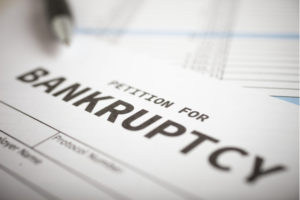
When an investment sounds “too good to be true” we immediately know the refrain. Why then do investors get stuck in this trap time after time? Because it’s those who can’t afford to lose money who take the biggest hits. Which reminds me, by the way, who can afford to lose money? No one.
When investors look for the market to do something for them, they are immediately placed on a slippery slope. When investors sell out of the market they now need Mr. Market to help them make up for their losses. Then, along comes an investment product with a fancy gimmick that appears to be fail-proof. And then it’s not.
Akane Otani and Sebastian Pellejero report on one such gimmick in The Wall Street Journal:
When William Mark decided to get back into investing after the 2008 financial crisis, he looked past stocks and bonds. Needing to play catch-up with his retirement portfolio, the piping engineer decided to bet on a complicated product he hoped would deliver double-digit annual returns.
It worked so well—earning him 18% a year in dividends, on average—that he eventually poured $800,000 into the investments, called leveraged exchange-traded notes, or ETNs. When the coronavirus pandemic hit, he lost almost every penny.
“I’m 67 years old and I’m basically bankrupt in just two weeks,” Mr. Mark said.
The pandemic-fueled economic downturn has sparked turmoil in nearly every financial market. It has taken a particularly brutal toll on investors like Mr. Mark, who wagered on the roughly $7 trillion market for structured products: complex instruments that include ETNs, options-based strategies and certificates of deposits whose returns are tied to stocks or currencies.
Banks and brokerages advertised them as offering payouts both steadier and more lucrative than plain-vanilla investments such as bonds or index-tracking funds. Most professional money managers avoided them. For many less sophisticated retail buyers, the market blowup taught the kind of painful lesson that comes with just about every economic crisis: There is no such thing as an investment that is both safe and highly profitable.
Originally posted on Your Survival Guy.

